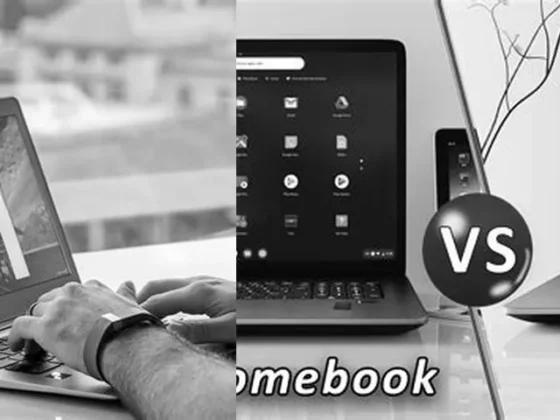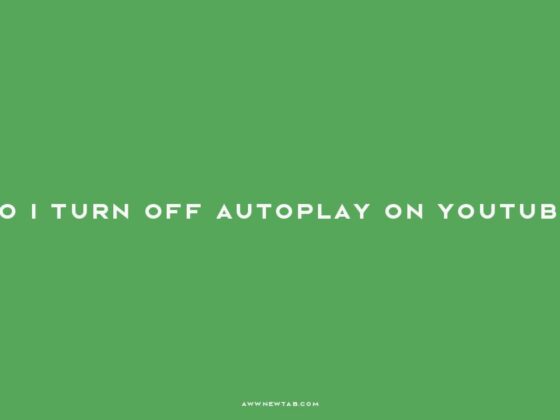What Can’t Chromebooks Do? Exploring the Limitations and Practical Implications – Are Chromebooks the perfect all-in-one solution for every task under the sun? Well, not quite. While these sleek devices have gained popularity for their simplicity and affordability, there are still some things they can’t do. In this blog post, we’ll explore the limitations of Chromebooks, compare them to PCs, and discuss the practical implications for users. So, if you’re wondering whether a Chromebook is the right tool for your needs, keep reading to find out what you need to know.
Understanding the Limitations of Chromebooks
Chromebooks have carved out a niche for themselves in the tech market, offering a streamlined, web-focused experience that resonates with students, casual users, and professionals who rely predominantly on cloud services. However, while these devices excel in portability and battery life, they are not without their limitations, particularly when it comes to handling resource-intensive tasks.
Video Rendering and Editing Capabilities
One of the primary constraints associated with Chromebooks is their performance in video rendering and editing. Video editing is a process that demands substantial computational power and graphics capabilities, areas where Chromebooks tend to fall short. Despite the convenience and affordability they offer, Chromebooks are built with low-end technology that is not designed to handle the heavy lifting required by video editing software.
“Chromebooks have revolutionized the way we think about computing on the go, but when it comes to video production, they struggle to keep pace with the demands of rendering and editing.”
Lack of Support for Adobe Photoshop
Another notable limitation is the absence of support for Adobe Photoshop, a cornerstone in the world of graphic design and photo editing. Professionals and enthusiasts alike depend on Photoshop for its extensive features and capabilities which are unmatched by other software. Unfortunately, Chromebooks do not support Adobe Photoshop, thus hindering users who require sophisticated image manipulation tools.
Running Demanding Games and Graphics-Intensive Applications
Gaming is another area where Chromebooks lag behind PCs. High-quality gaming requires substantial graphical processing power and a robust hardware setup, which Chromebooks are not engineered to provide. As such, running demanding gaming or graphics-intensive applications is a task Chromebooks are not cut out for. This encompasses not just modern PC games but also professional applications used in 3D modeling and animation.
Comparing Chromebooks with PCs: The Performance Gap
When considering the capabilities of Chromebooks versus PCs, the comparison often highlights a significant gap in performance, particularly for power users who depend on their computers for high-end software and applications.
Processing Power and Storage Capacity
At the heart of this performance gap is the variance in processing power and storage capacity. PCs are generally built with more robust processors and a greater capacity for storage, allowing them to manage more demanding software with ease. This means that resource-intensive tasks which would be unfeasible on a Chromebook are within the capabilities of a typical PC.
Resource-Intensive Software and Applications
It is not just about having the ability to run software, but also about the efficiency and speed with which it operates. PCs can handle resource-intensive applications and software such as high-end video editing programs, 3D modeling software, and certain PC games, all of which require substantial computing resources. These types of applications are often essential for professionals in fields such as video production, game development, and digital art.
What Are the Practical Implications for Users?
The limitations of Chromebooks have real-world implications for various user groups. Let’s explore what these limitations mean for different types of users and provide actionable tips for those considering Chromebooks for their computing needs.
For Digital Content Creators
- Video Editors: If you are into video editing, you might find Chromebooks frustratingly inadequate. For tasks such as cutting, rendering, and exporting high-resolution video, you’re better off with a PC that can handle editing software like Adobe Premiere Pro or DaVinci Resolve.
- Graphic Designers: Without access to Adobe Photoshop, graphic designers will need to seek alternative solutions. While there are web-based options available, they often lack the depth of features found in Photoshop. A PC with the Adobe suite would be a more suitable choice.
For Gamers and Enthusiasts
- PC Gamers: If gaming is your passion, a Chromebook will not satisfy your need for performance and graphical fidelity. Opt for a gaming PC with a dedicated graphics card and sufficient RAM to support your gaming adventures.
- 3D Modelers and Animators: Chromebooks are not designed for the heavy computational requirements of 3D modeling and animation. Consider a workstation PC with a powerful CPU, plenty of memory, and a high-end GPU for these tasks.
For the Casual User
If your computing needs are centered around web browsing, streaming media, and using office applications, then Chromebooks can be a cost-effective and efficient solution. They offer fast performance for these tasks and the simplicity of Chrome OS can be a boon for those seeking a straightforward user experience.
Choosing the Right Tool for the Job
The key takeaway from the Chromebook versus PC debate is that each has its place in the computing ecosystem. Chromebooks are excellent for users who rely on web applications and services, while PCs are the go-to choice for resource-intensive tasks and applications.
Assessing Your Computing Needs
Before making a decision, assess your computing needs:
- Identify the primary purpose of your computer: Is it for work, recreation, or both?
- Determine the software and applications you use most frequently and their system requirements.
- Consider future needs, such as potential software upgrades or changes in your workflow.
Final Thoughts
A Chromebook can be a valuable asset for users who value mobility, simplicity, and cost-effectiveness. However, for those whose demands exceed the capabilities of these devices, investing in a PC is the sensible choice. By understanding the limitations and strengths of each option, you can make an informed decision that aligns with your computing needs and lifestyle.
Remember, the goal is not to find a one-size-fits-all solution, but rather to select a device that best supports your individual requirements. Whether you’re a content creator, a gamer, or just need a device for everyday tasks, there’s a computing solution out there that’s perfect for you.
FAQ & Related Questions about What Can’t Chromebooks Do?
Q: Can I use a Chromebook for photo and video editing?
A: No, Chromebooks have low-end technology that makes video rendering and editing virtually impossible. They also do not support the simple use of Adobe Photoshop.
Q: Why are Chromebooks not recommended for students?
A: Chromebooks rely on an internet connection for most features and functionalities, which may expose students to inappropriate or harmful content online that is not suitable for their age or educational needs.
Q: What are some things I should not do on a school Chromebook?
A: Some things you should not do on a school Chromebook include attempting to gain access to other students or teachers accounts, files, or data; sending unsolicited messages to other students; throwing your Chromebook; and sitting books on top of your Chromebook.
Q: Why are Chromebooks so cheap?
A: Chromebooks are inexpensive because they have a lightweight operating system that boots up quickly, require minimal software updates, and offer strong protection from malware.


